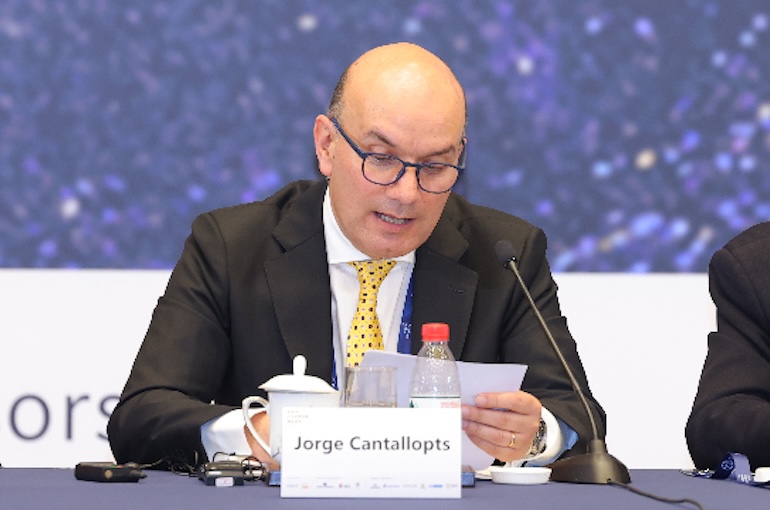 Copper Demand to Stay Robust Despite Trump's Potential New Policies, CESCO’s Cantallopts Says
Copper Demand to Stay Robust Despite Trump's Potential New Policies, CESCO’s Cantallopts Says(Yicai) Jan. 6 -- Global copper demand is expected to remain strong despite the likelihood of pro-fossil fuel policies under US President-elect Donald Trump’s second administration, according to Jorge Cantallopts, an executive director at the Center for Copper and Mining Studies, a think-thank based in Chile.
Copper plays a crucial role in both energy transition and traditional energy sectors, Cantallopts told Yicai in a recent interview. The slower pace of energy transition will not undermine the growing demand for copper because the metal's primary use remains in traditional energy infrastructure, he added.
“Even if the velocity of energy transition is lower than in the past 10 years, it's not so bad for copper,” Cantallopts said, adding that the industry should strive to boost capacity.
Copper demand has risen in recent years, driven by advances in energy transition, artificial intelligence, new energy vehicles, renewable energy sources such as solar and wind power, data center expansion, and energy storage battery systems.
Cantallopts said the main impact on the global copper industry of Trump's anticipated new import tariffs will depend on the specific levies that the United States imposes on Canada and Mexico.
"The relation between Canadian, Mexican, and US copper is very strong, as Canada and Mexico are very important mineral suppliers for the US," he noted, adding that if tariffs are increased, the global copper situation will alter.
But Cantallopts does not think it likely that the US will raise tariffs on Canadian and Mexican copper, as the country will require significant mineral imports -- beyond what domestic producers can supply -- to step up its industrialization efforts.
Chile, the world's largest copper producer, will not be greatly affected by the potential new import tariffs, he pointed out, expressing confidence in the resilience of the Chilean market for the metal.
Still, the South American country faces a number of challenges in maintaining high copper production levels. Most Chilean copper projects are decades or even centuries old, which affects ore grades, Cantallopts noted.
“Most of the old mines are transitioning from oxide mines to sulfide mines, which are more expensive to operate because they need more water and energy,” he said.
Foreign investment plays a crucial role in Chile’s copper industry, as projects operated by overseas participants account for 60 percent to 65 percent of the metal’s production, with the lengthy and complex process to obtain long-term development permit in the country another challenge facing the local industry.
In regard to this issue, the country needs to become more efficient, Cantallopts said: “Not 10 percent, but 90 percent more efficient!”
Maintaining high environmental and social standards is crucial, but short approval timelines are also another must, he added.
"The dialogue between mining companies and local communities is a key element to reduce waiting times," he noted. “It's not in the law, but in fact, the communities are the ones approving new projects.”
Looking ahead, Cantallopts sees the potential for greater Chinese participation in Chile's copper mining sector, which is minimal at present. "At least two very important Chinese companies are looking for mining opportunities in Chile," he revealed.
Cantallopts also mentioned that Asia Copper Week, held every November in Shanghai, is the most important gathering for the global copper industry. “China will remain the most important player in the global copper industry for the next 10, 20, 30, 40, and even 50 years,” he predicted.
Editor: Futura Costaglione